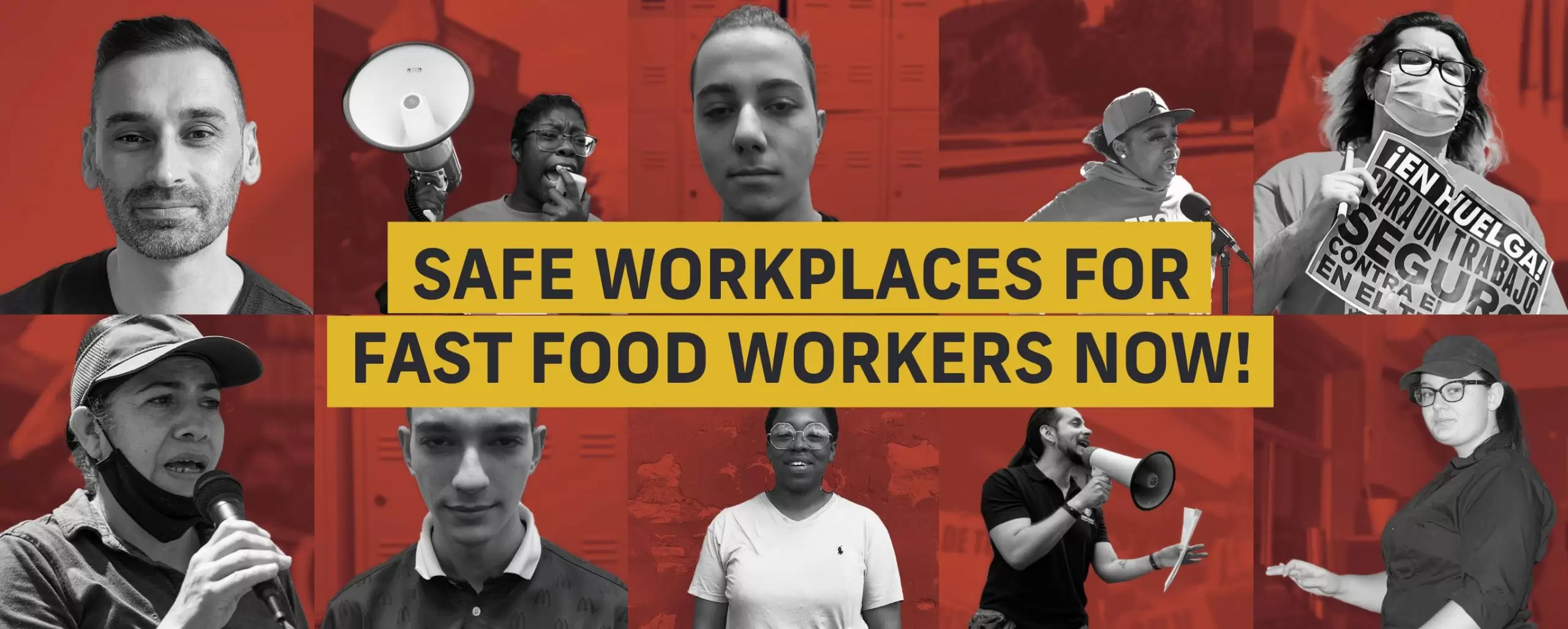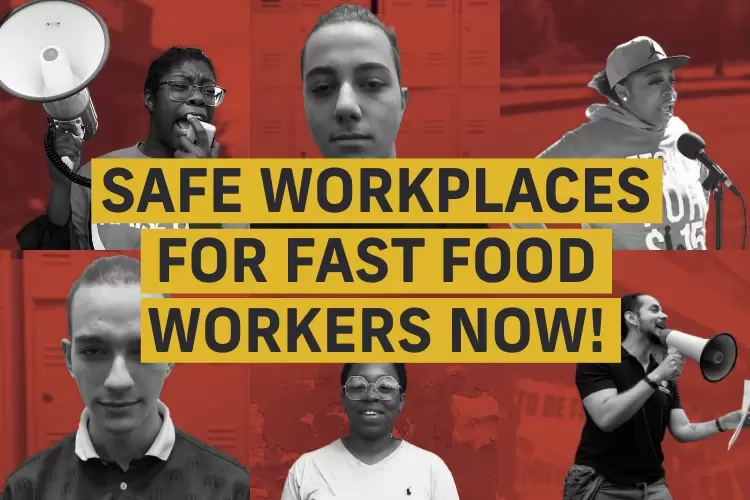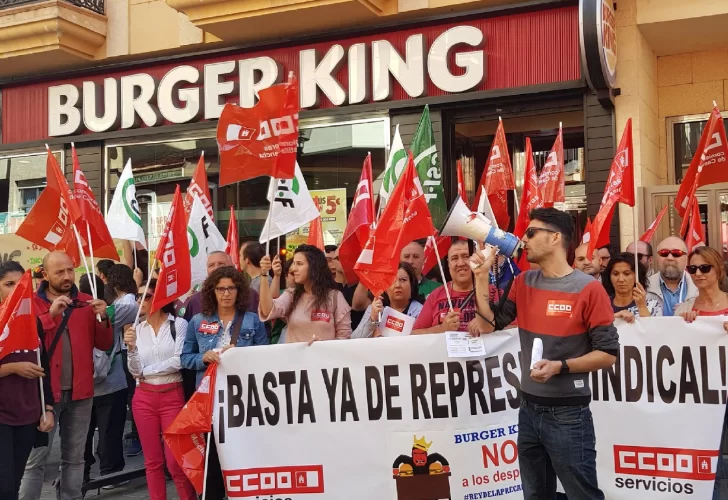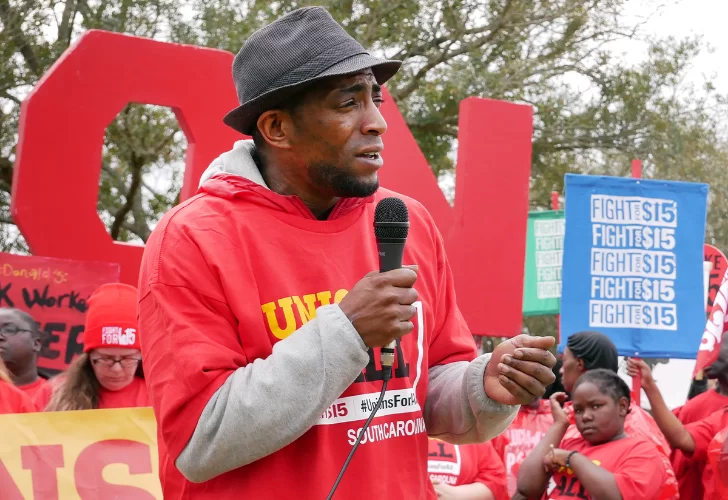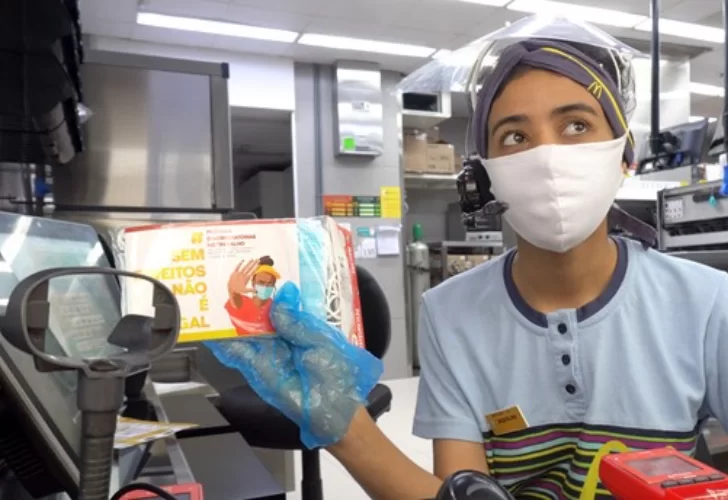How can you recognize a fast food worker anywhere in the world? By the scars on our arms.
Millions of workers are employed by the Fast Food industry globally, on hundreds of thousands of locations. Despite huge growth in numbers of workers and profitability, the sector has chosen to prioritize profits over people with dangerous and abusive working conditions. For many young workers, it’s our first job and one that leaves us scarred for life.
Fast Food workers deserve a safe workplace. And we deserve it now.
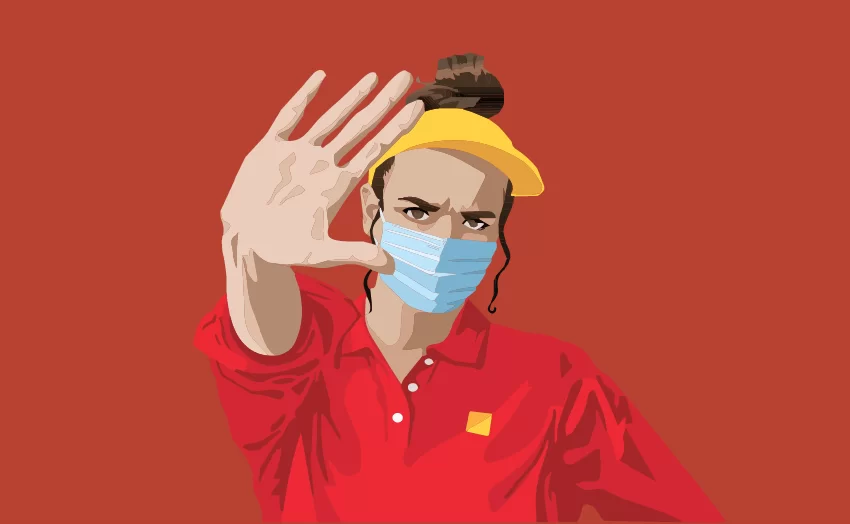
Oil Burns and Slip & Fall injuries

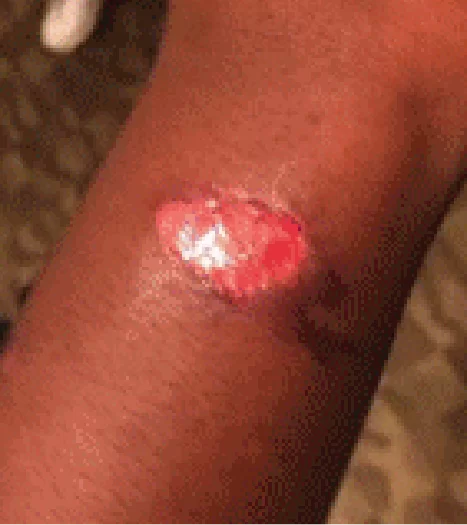


Oil burns happen every day to fast food workers. Hot fry oil combined with chronic understaffing and high workload creates a dangerous work environment.
Oil mist from fryers spreads during use and creates slippery floors. Even if slip-protective shoes are provided, slips and falls from oil are a major hazard.
Cleaning and maintenance of deep fryers is dangerous. Employers must provide extensive training as well as personal protective equipment and safe work processes in order to keep workers safe.

Stress and Workload Hazards
FAST FOOD MEANS:
Fast pace, High stress.
The demand for speed creates a stressful working environment which increases the risk of workplace-related injuries and conflict. Stress is a major workplace hazard, and long-term stress can leads to sleep, heart and mental health problems.
Stress combined with irregular working hours and precarious working conditions increases our vulnerability.
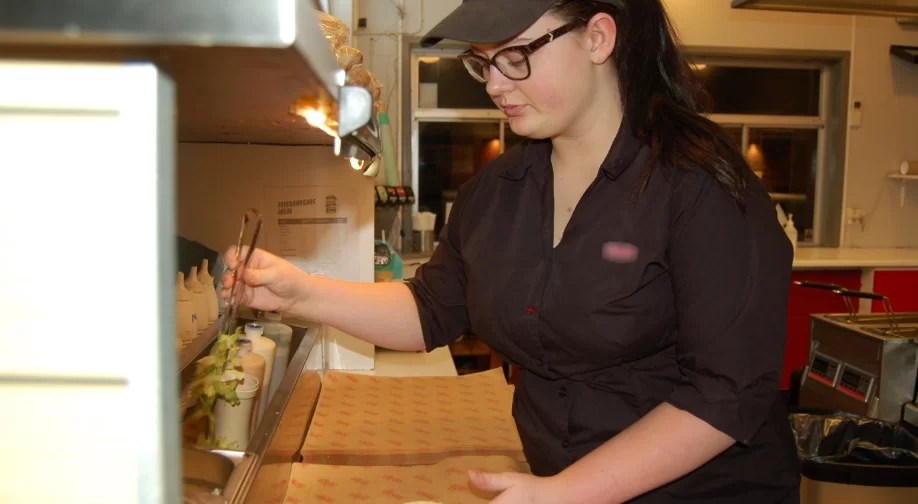
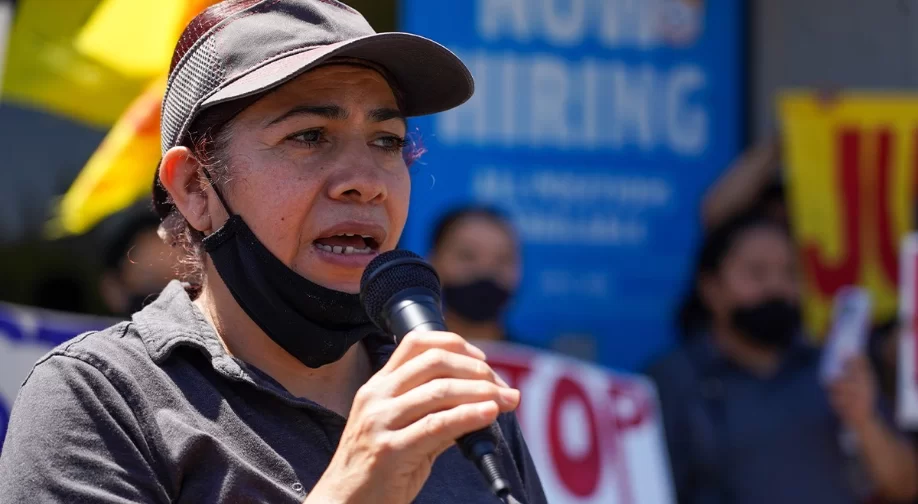
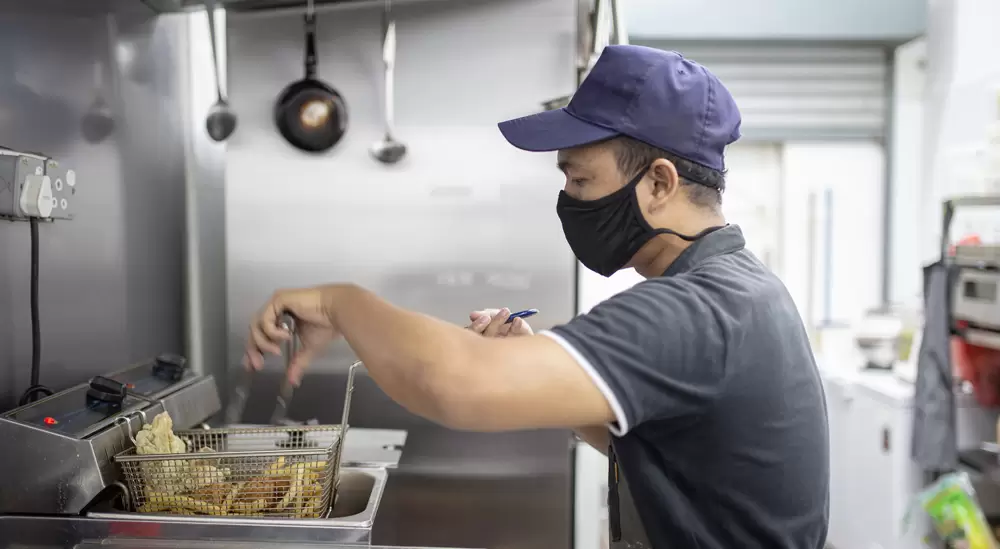
Sexual harassment and gender-based violence
Sexual harassment and gender-based violence traumatize workers every day in the hospitality sector. From strikes to courts to major media outlets and beyond, Fast Food workers from around the world have shared their stories again and again. Employers must act now.
- Small kitchens, abusive work cultures, and precarious working conditions have created a system problem of sexual harassment in the Fast Food sector
- Young workers with older managers and a culture of “the customer is always right” create an unhealthy power dynamic which increases the risk of sexual harassment and gender-based violence
- No contracts, zero-hour contracts, fixed-term contracts and other insecure work arrangements make workers dependent on management’s good will, making it harder to report cases of sexual harassment
- Toxic corporate culture in fast food companies has made it possible for sexual harassment and gender-based violence to continue unpunished with workers fearing retaliation for speaking up
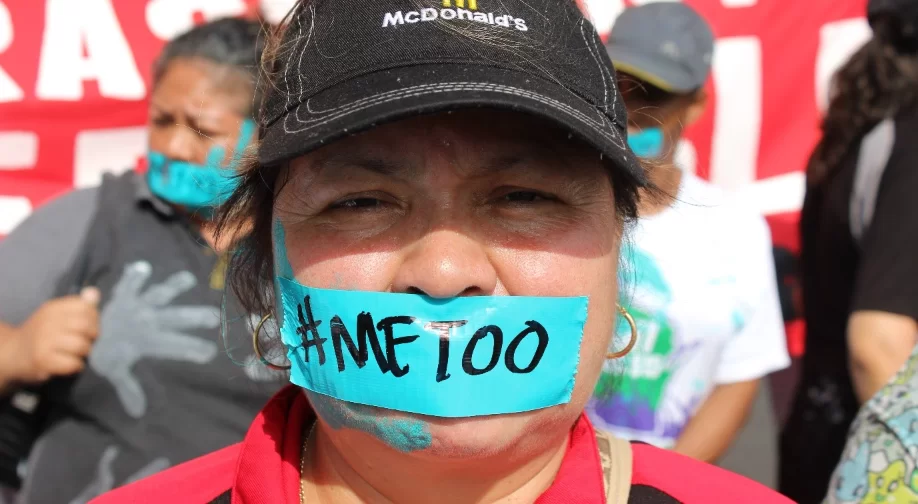
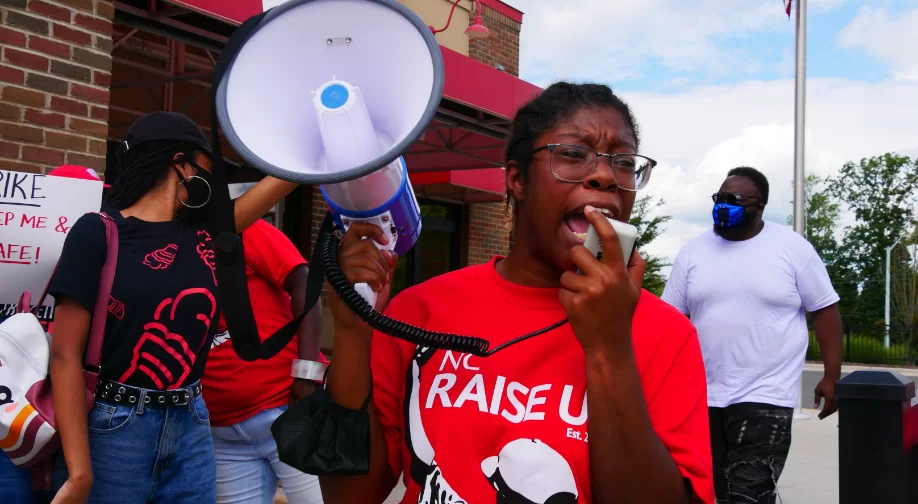

What can workers do?
Fast Food workers have the right to safe working conditions, free from hazards and harassment, and with reasonable workloads. Fast Food workers cannot wait to secure the rights and working conditions we deserve.
HERE’S WHAT YOU CAN DO TO PROTECT YOUR RIGHTS:
What can Governments do?
Fast Food chains are often the entry point for young workers to the labour market with the standards established in this sector shaping workers expectations throughout their careers. Protecting young workers at the beginning of their careers helps to ensure a safe and healthy future workforce. And given that Fast Food companies turned a profit even during COVID-19, the industry can afford to start workers off right.

